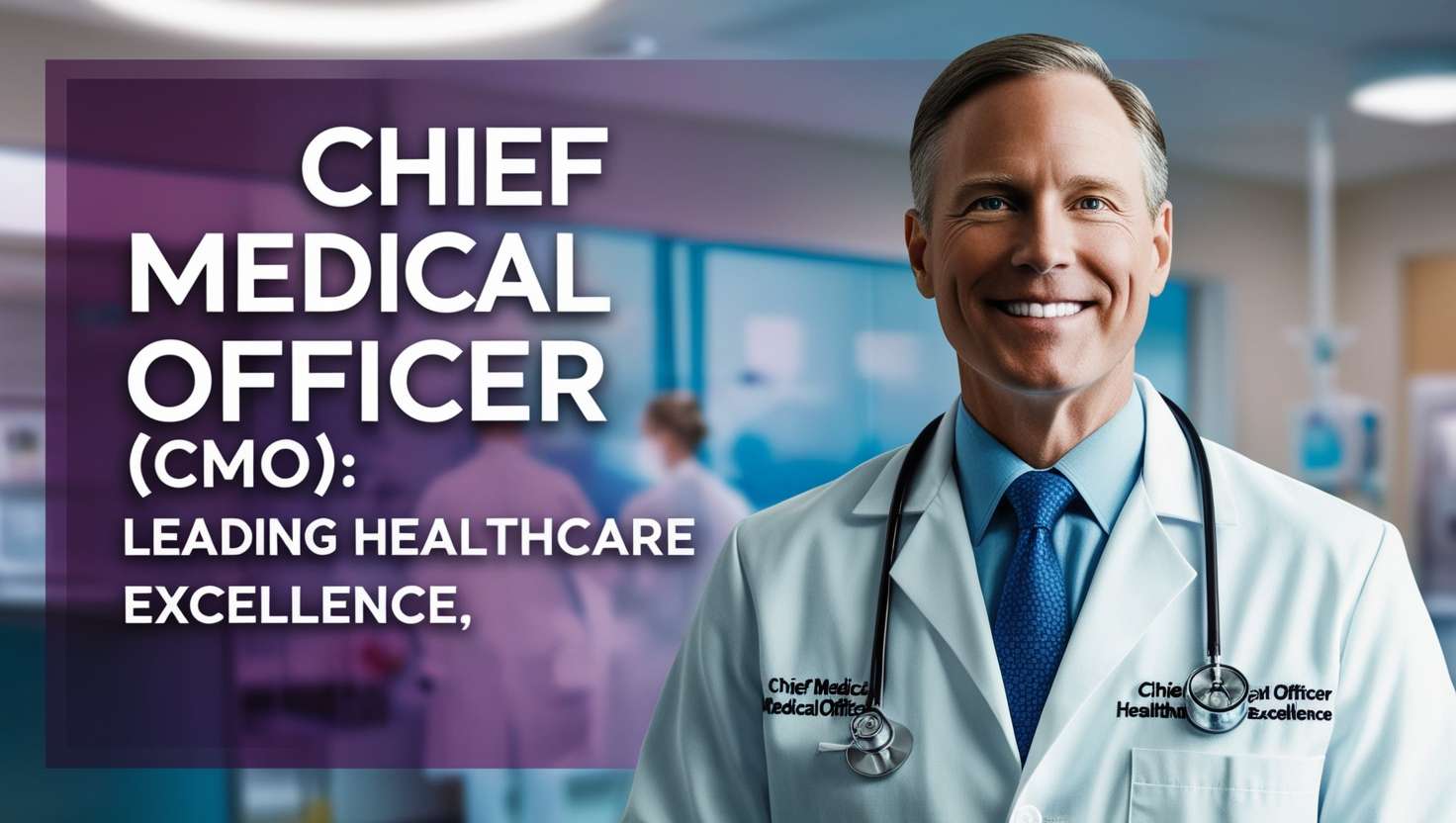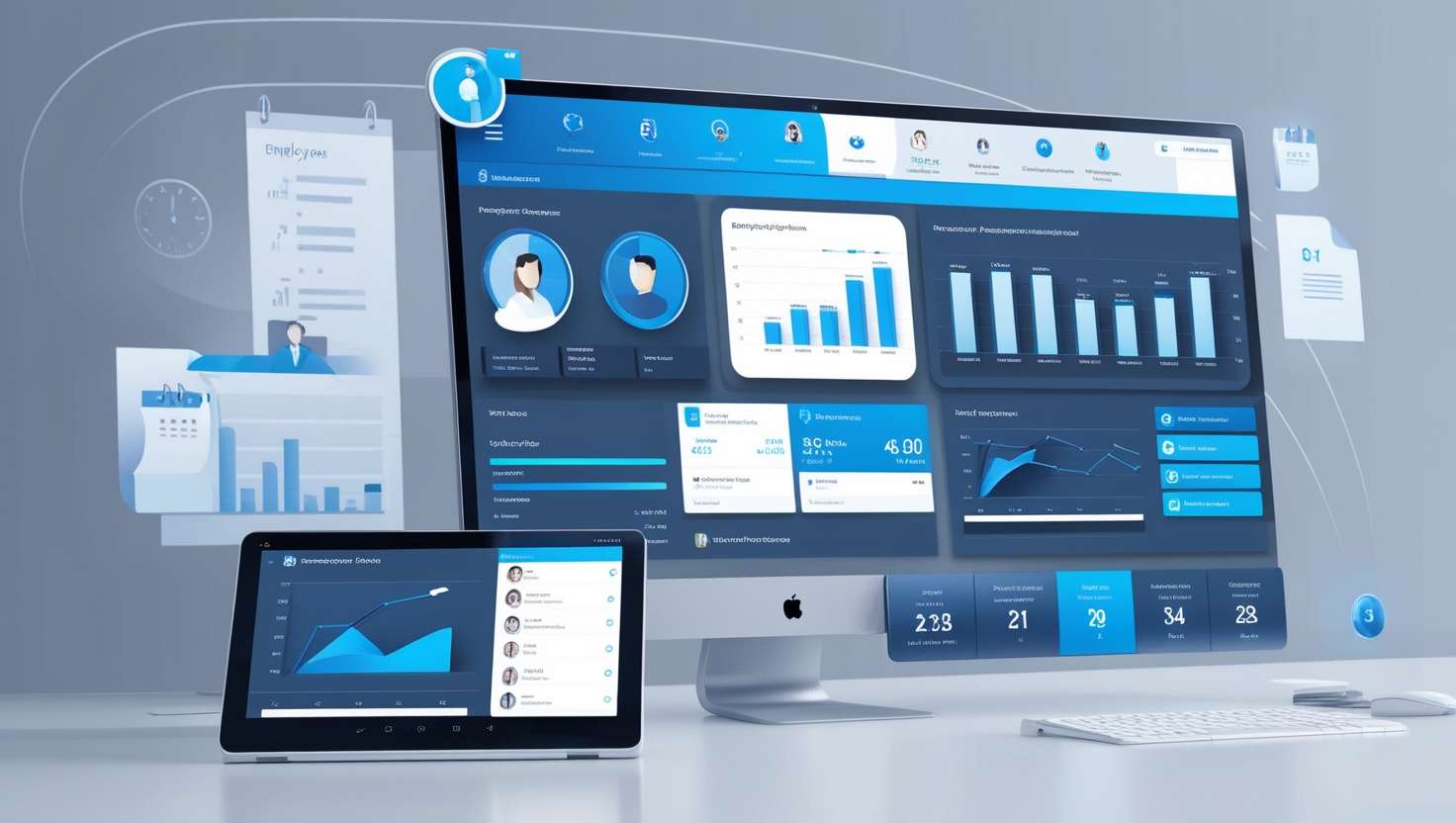Full Form of CMO – (Chief Medical Officer)
A Chief Medical Officer(CMO) has an important job in managing the medical department of a healthcare organization. The CMO ensures patient safety, works on quality improvement, and helps with strategic planning. They combine medical knowledge with business skills. With their leadership capabilities and analytical skills, the CMO understands market dynamics and healthcare regulations. Besides managing medical services, the CMO works closely with medical staff, senior executives, and government groups. This collaboration helps maintain high patient care standards and supports overall success for the organization.
SEE ALSO : What Is the Full Form of ACH ? Exploring ACH Payments: A Complete Guide
Introduction
The world of healthcare can be complicated. Being a Chief Medical Officer (CMO) is a big deal. Knowing what CMO stands for is just the start. There are many duties linked to this job. A CMO leads the team to make sure patients get good care. They also help navigate the changing healthcare scene. This blog post will look at the many roles of a CMO, how one builds their career, and the difference they make in the healthcare sector.
SEE ALSO : TAT Full Form: All You Need to Know & More
Key Highlights
- CMO stands for Chief Medical Officer. This leadership role in healthcare organizations involves overseeing medical staff, patient care quality, and healthcare policies.
- They oversee medical staff, patient care quality, and healthcare policies.
- CMOs require a medical degree, often with a master’s, and extensive experience.
- They face challenges like balancing clinical and administrative tasks, regulatory compliance, and technology advancements.
- The CMO’s role is crucial for patient safety, quality improvement, and strategic growth in healthcare.
What a CMO Does in Healthcare
Being a CMO is super important and involves a lot of different jobs in healthcare.
- Clinical Leadership : CMOs guide medical staff and help create a strong focus on excellent patient care.
- Quality Improvement : They work on projects that aim to make patient safety better, lower medical errors, and improve health outcomes.
- Policy Implementation : CMOs help create, carry out, and check healthcare policies and procedures that follow best practices and legal rules.
Their knowledge is important for making decisions about using new medical technology, managing resources, and making plans for the future. The CMO plays a key part in keeping the organization updated with the latest medical improvements and providing quality care centered around patients.
SEE ALSO : Jio Full Form : All You Need to Know
Key Leadership Qualities of a Successful CMO
An effective CMO has a mix of medical knowledge, leadership abilities, and great people skills. These traits help in managing the complex world of healthcare and bringing about positive changes.
- Communication : A CMO must be able to explain things clearly to both medical and non-medical staff. This includes sharing complex medical details, getting agreement among different groups, and supporting patient needs.
- Visionary Thinking : CMOs need to see future healthcare trends and create plans that set their organizations up to succeed.
- Problem-Solving : The healthcare field is always changing and new issues arise often. A good CMO should be a strong problem solver. They need to look at problems, make important choices, and find effective solutions.
Pathway to Becoming a CMO
The path to becoming a Chief Medical Officer (CMO) includes hard study, lots of clinical experience, and strong leadership skills. You need to be dedicated to growing in your job and have a desire to make healthcare better.
People who want to be CMOs usually start as working doctors, often focusing on one area of medicine. As they move forward in their careers, they take on more leadership roles. This can mean managing a medical department or running a clinical program.
Academic Requirements and Necessary Certifications
The start of a CMO’s career is their education. They need a medical degree (M.D. or D.O.) from an approved medical school. Many future CMOs also go on to get a master’s degree.
- Master’s Degree: An MBA or a Master’s in Public Health (MPH) is very helpful. It teaches people about healthcare management, policy analysis, and business administration.
- Certifications: Certifications are not always required, but having a board certification in a medical specialty can improve a CMO’s credentials. Other certifications in patient safety or healthcare quality can also help.
These advanced degrees prepare CMOs with a wider view of healthcare systems, financial management, and strategic planning. These skills are key in their executive role.
Professional Experience and Skills Development
Clinical experience is very important for a CMO. People wanting to become CMOs often work as senior doctors for many years. This time helps them learn about patient care, medical procedures, and how hospitals work.
- Leadership Roles: Over time, they start taking leadership roles in medicine. They become responsible for managing medical teams and ensuring patient safety. They also work on creating and following clinical protocols.
- Training Programs: Joining training programs made for doctors can help them learn about good communication, making strategies, and managing changes.
This kind of hands-on experience helps them understand the challenges and chances in healthcare organizations. It gets them ready for the many tasks that come with being a CMO.
The Daily Responsibilities of a CMO
A CMO has many different tasks each day. They have to be adaptable and think about the big picture. One moment, they could be looking at patient safety data. The next, they may be in executive meetings, talking about what the medical staff needs, or working with other department leaders.
A CMO must combine their clinical knowledge with administrative duties all the time. Their crucial role is to keep medical services running smoothly. At the same time, they focus on long-term goals and encourage new ideas within the organization.
Overseeing Clinical Operations and Patient Care Quality
A big part of a CMO’s job is to manage clinical operations. It is very important that patients get safe, effective, and kind care.
- Patient Care Standards : CMOs team up with medical staff to set and keep high standards for patient care. This means creating clinical protocols, using proven methods, and checking how patients are doing.
- Performance Improvement : They work on ways to make quality better. They look at data, find areas to improve, and lead efforts to enhance clinical processes and reduce errors.
- Resource Management : CMOs help decide how to use resources. They make sure medical staff has the tools and support they need to give great patient care.
CMOs are always looking for ways to make the patient experience better. They aim to improve healthcare results and build a culture of safety and quality in their organization.
Implementing Healthcare Policies and Procedures
CMOs, or Chief Medical Officers, play a key role in putting healthcare policies into action at their organizations. They work closely with hospital administration. Their goal is to make sure that policies and procedures meet local and national rules while matching the mission and values of the organization.
- Policy Development : They help create new policies. They share their knowledge on medical ethics, patient rights, and best practices in healthcare delivery.
- Communication and Training : CMOs are also important for sharing new policies with medical staff. They make sure everyone knows their duties and understands why changes are being made. They might also run training programs to help put new protocols into practice.
- Compliance Monitoring : It is vital to regularly check if the organization is following healthcare regulations. This helps reduce risks and keeps the organization accredited. CMOs actively take part in this monitoring.
Challenges Faced by Chief Medical Officers
The role of a CMO has its own challenges. They need to support patient care while also handling tough administrative and financial pressures. Healthcare regulations change often, and medical technology is improving fast. This means CMOs must be quick to adapt. To deal with these challenges, it is important to build good relationships with stakeholders. They also need to ask for resources and encourage a culture of innovation in the organization.
Navigating Healthcare Regulations and Compliance Issues
The healthcare field is always changing. New rules and standards come up often. CMOs are very important to make sure their organizations follow all laws and guidelines.
- Staying Informed : CMOs need to keep up with changes in healthcare rules both at the state and national levels. This means they must be dedicated to learning continuously and improving their skills.
- Compliance Implementation : They must turn complicated regulations into clear policies and procedures. This helps medical staff understand and follow the rules more easily.
- Risk Management : CMOs help find any compliance risks and create plans to reduce them. This involves setting up strong record-keeping, doing regular internal checks, and building a culture of taking responsibility.
Addressing the Dynamics of Healthcare Technology Advancements
The fast growth of technology in healthcare brings both good and tough challenges for Chief Medical Officers (CMOs). They need to find a way to use new technologies to improve patient care. At the same time, they must check their safety, efficiency, and cost.
- Technology Assessment : CMOs often look at new medical devices, software, and telehealth tools. They want to see how these will affect patient care and how smoothly they fit into the current practices.
- Implementation Strategies : CMOs have a crucial role in making plans to smoothly add new technologies into clinical work. This can mean training medical staff, answering their questions, and making the switch easy.
- Strategic Direction : CMOs must think ahead about how technology can help their organization reach its long-term goals. These might include helping more patients get care, lowering healthcare costs, or improving health for the community.
Impact of a CMO on Healthcare Improvement
The role of a CMO is very important in a healthcare organization. They support quality improvement efforts. They also encourage teamwork and focus on patient care. This help improves healthcare results.
A CMO’s leadership is key for bringing new ideas. They help their organizations change with the industry. This way, they can keep providing good, patient-centered care.
Enhancing Patient Care and Safety
At the center of the CMO’s job is a strong focus on improving patient care and safety. They look at every part of their work by thinking about how it affects the patient experience. They work hard to create a culture that puts patient well-being first.
- Patient-Centered Approach : CMOs stand up for patient needs in all parts of the organization. They support good communication between patients and medical staff. They also promote shared decision-making and make sure patient views matter when new policies are created or changes are made.
- Safety Culture : Building a safety culture is very important. CMOs promote honesty about medical errors. They encourage folks to report near misses. They put systems in place to learn from mistakes and avoid future harm.
- Quality Metrics : By keeping a close eye on quality metrics related to patient safety, readmissions, and complications, CMOs can find areas that need improvement and see how well interventions work.
Driving Strategic Initiatives for Healthcare Growth
CMOs are very important for guiding healthcare organizations. They help these organizations stay competitive and flexible in a fast-changing field.
- Market Analysis : CMOs keep up with market trends. They study the competition, find ways to grow, and look out for any challenges ahead.
- Strategic Partnerships : They work on building partnerships with other healthcare providers, pharmaceutical companies, or tech firms. This helps expand services, improve care coordination, and boost efficiency.
- Innovation and Growth : CMOs lead the push for innovation in their organizations. They encourage the use of new technologies, support pilot programs, and promote ideas that can enhance patient care and drive growth.
Conclusion
In conclusion, it is important to understand the role of a Chief Medical Officer (CMO) in healthcare. This understanding helps improve patient care and support important projects. A good CMO needs to have strong leadership skills, the right education, and experience dealing with healthcare regulations. They make a real difference by creating policies, managing clinical work, and driving new ideas in healthcare. Even though there are challenges like compliance issues and new technology, a skilled CMO can bring positive changes to how healthcare is delivered. For those who want to be a CMO, gaining the right skills and qualifications is key to making a real impact in the healthcare field.
Frequently Asked Questions About CMO – Chief Medical Officer
Q – What qualifications are required to become a CMO?
A – To become a Chief Medical Officer (CMO), you usually need a medical degree. It is also a good idea to have a master’s degree like an MBA or MPH. You should have a lot of experience in a senior doctor or medical leadership role. Having certifications can also make you more qualified and improve your eligibility criteria.
Q – How do CMOs contribute to healthcare innovation?
A – CMOs help improve healthcare by promoting a creative environment.They search for new tech to try out, and they back research and development efforts. These efforts fit with the organization’s strategic planning goals for patient care and medical services.
Q – Can CMOs influence healthcare policy changes?
A – Yes, CMOs can help change healthcare policy. They do this by working with government agencies. They also join professional groups and advocate for changes. This is important for shaping the direction of the healthcare sector, especially in government hospitals.
Q – What’s the main job of a Chief Medical Officer (CMO)?
A- A Chief Medical Officer (CMO) has several important tasks. They supervise medical operations and plan the future direction of the organization. Additionally, they ensure the company adheres to rules and regulations. Building strong relationships with stakeholders is vital too. The CMO helps guide healthcare choices and works to ensure the success of the organization.
Q – What qualifications and experience are typically required to become a CMO?
A – Aspiring CMOs usually have a medical degree. Many of them also earn a master’s in business administration (MBA). It is important for these candidates to have a lot of experience as a senior doctor. They should show good leadership skills in medical management and administration.
Q – What are some key challenges faced by Chief Medical Officers in the healthcare industry?
A – CMOs have many challenges. They need to keep up with changing healthcare regulations. They also have to manage new technology. Rising healthcare costs are a concern too. They must address compliance issues while still providing quality care.
What is the full form of a CMO?
CMO means Chief Medical Officer. This is an executive role. The Chief Medical Officer leads and guides the medical strategy in a healthcare organization.
Q – What is a CMO in a company?
A– A CMO, or Chief Medical Officer, is an important job in a company, especially in the healthcare sector. This role focuses on leading and guiding all medical parts of the business. The CMO sets the strategy for the company’s medical goals and ensures everything runs smoothly.
Q – What is higher CEO or CMO?
A – In most companies, the CEO is the top executive. The CMO is a senior executive. The CMO reports to the CEO or the board of directors.
Q -What is a CMO in medical terms?
A – The Chief Medical Officer is a doctor in charge of the medical department of a government hospital or the medical staff in a healthcare organization. This role is important because it oversees all clinical operations. The Chief Medical Officer is usually the top medical expert in the organization.
Our Latest Posts
- 🔥 Best Phone Under 20000 in India (2026): AI-Powered Smartphones That Redefine Budget Tech 📱TEST
- 🔒 How to Protect Your Phone from Hidden Malware: Complete Guide 2025
- What Are Gen Z & What Generation Is Z? A Complete Guide
- The Ultimate Guide: What Is the Longest in the World? 🌍
- Machine Learning Time Series Regressions with an Application to Nowcasting




One thought on “CMO Full Form: What Is a Chief Medical Officer ?”